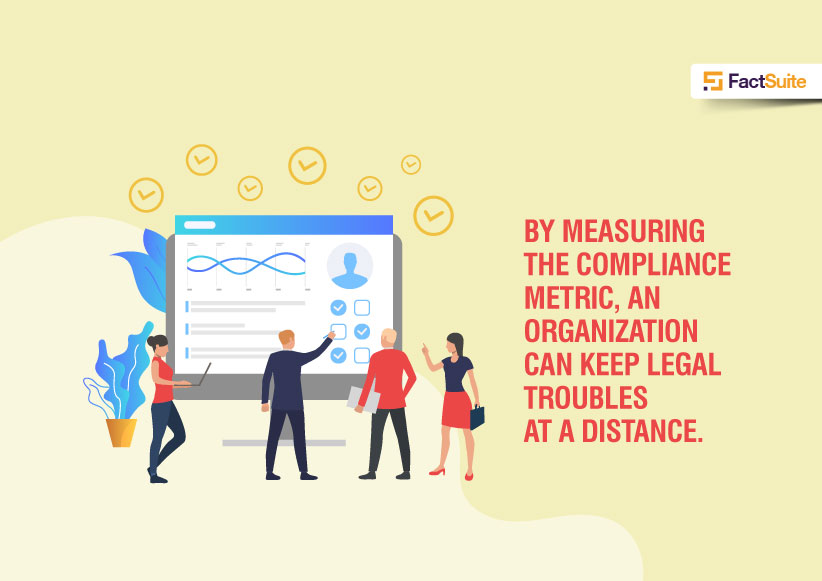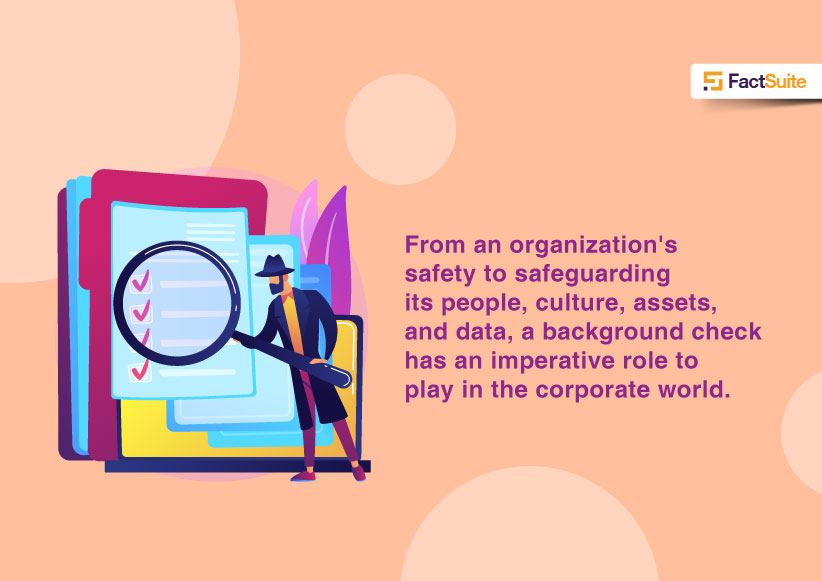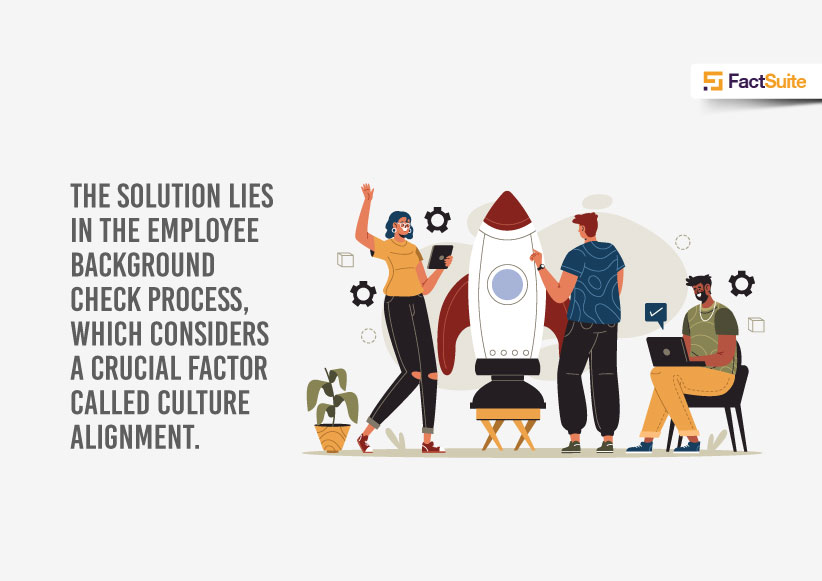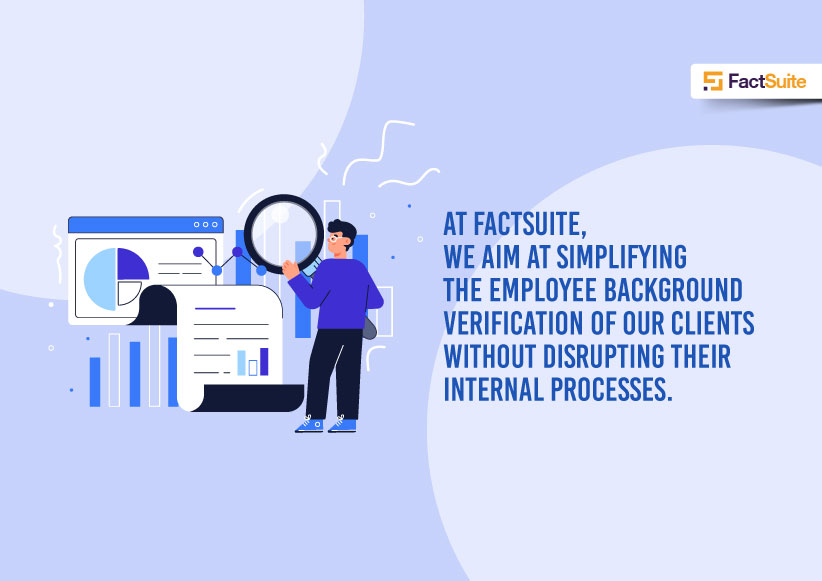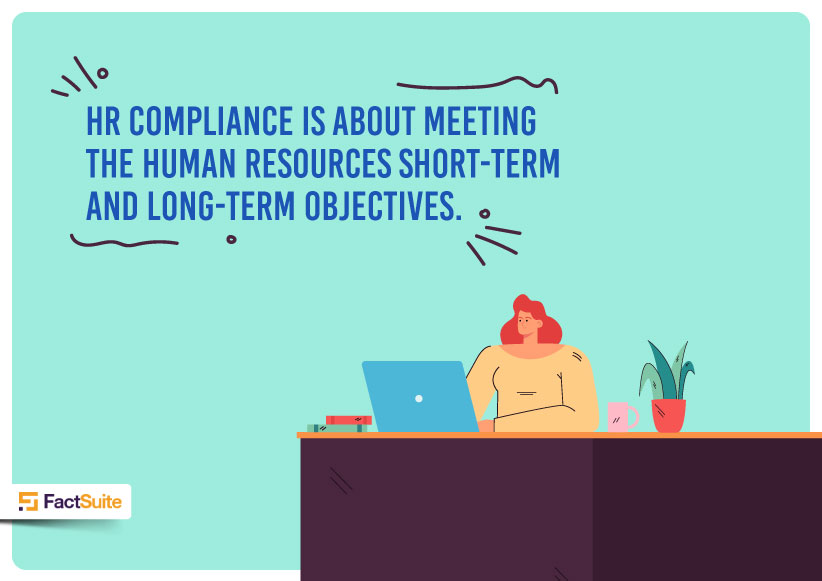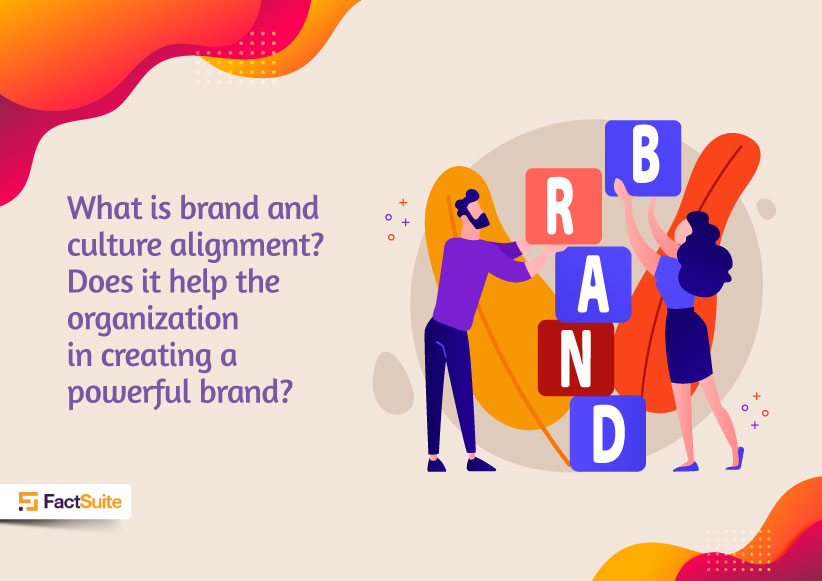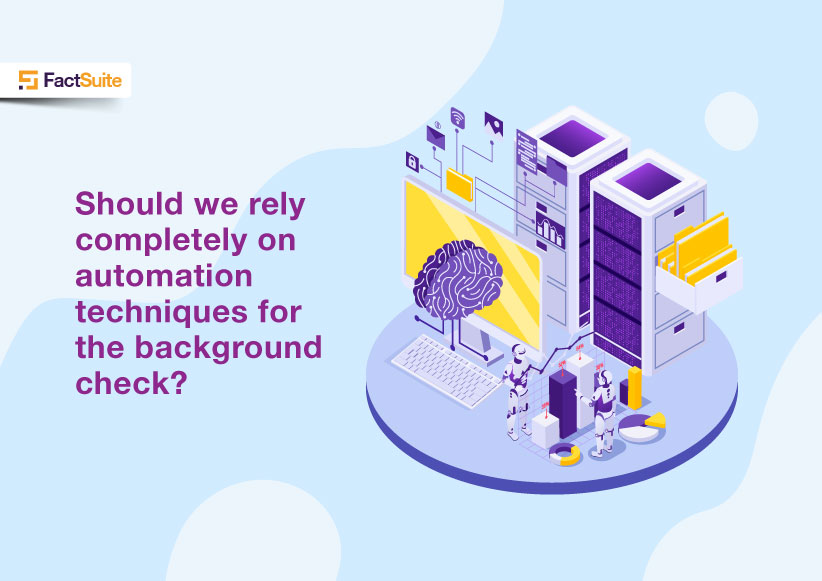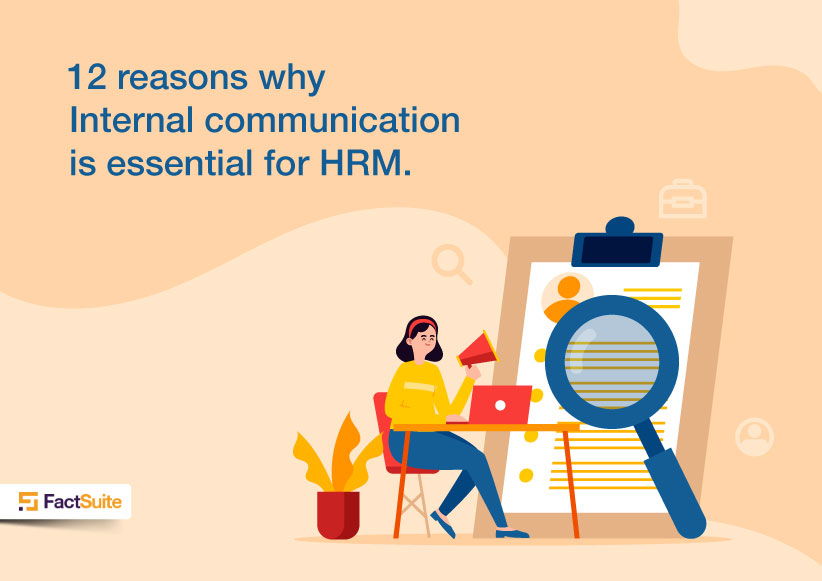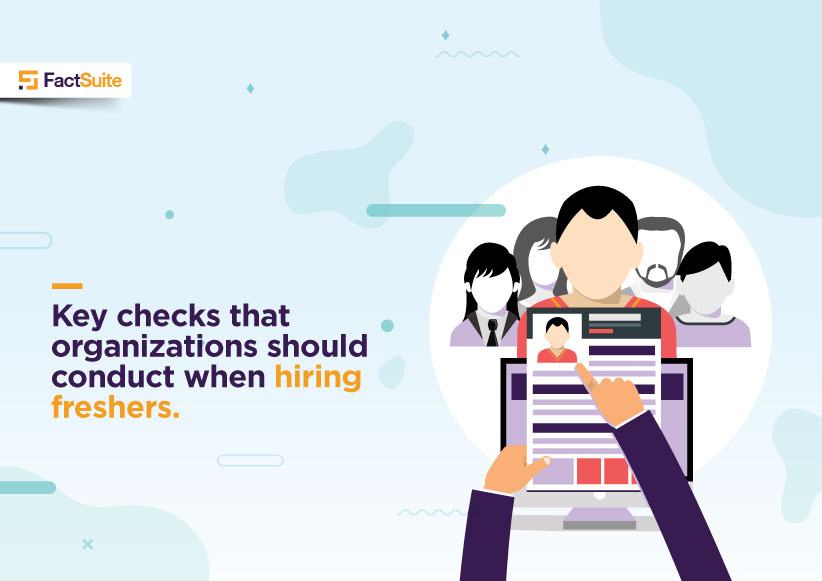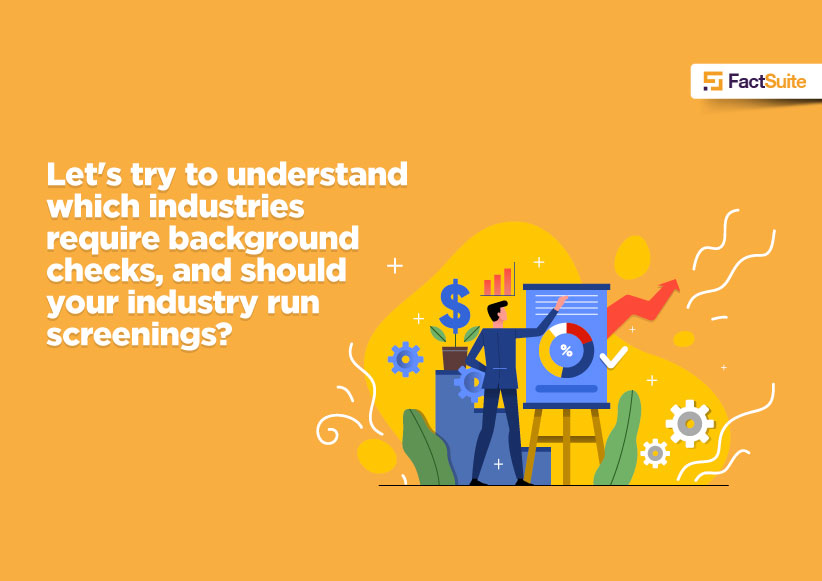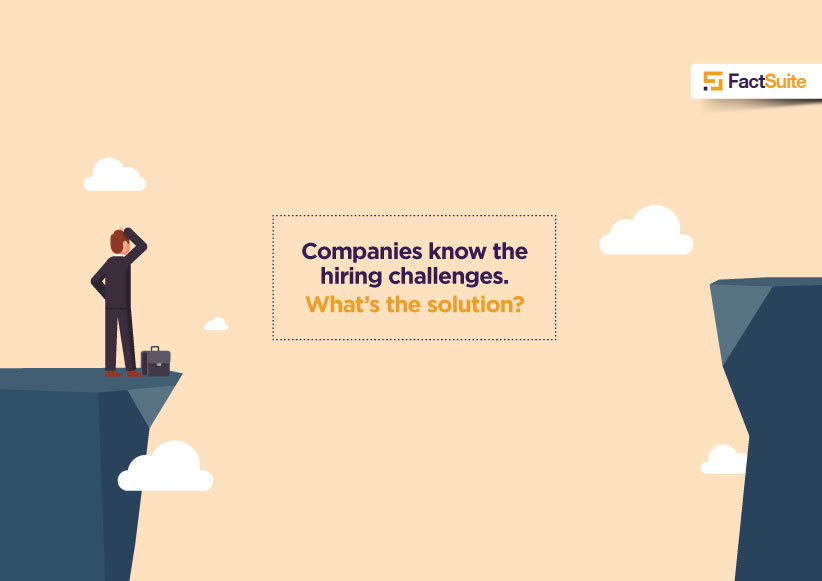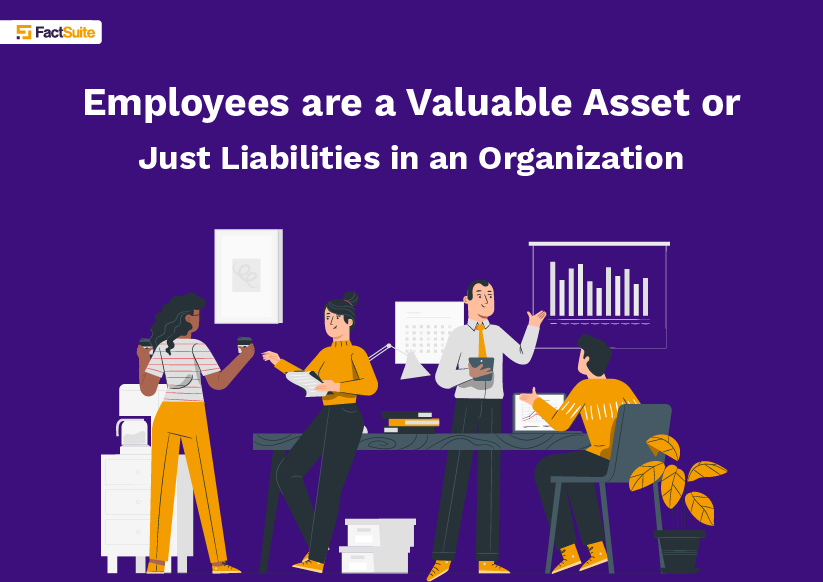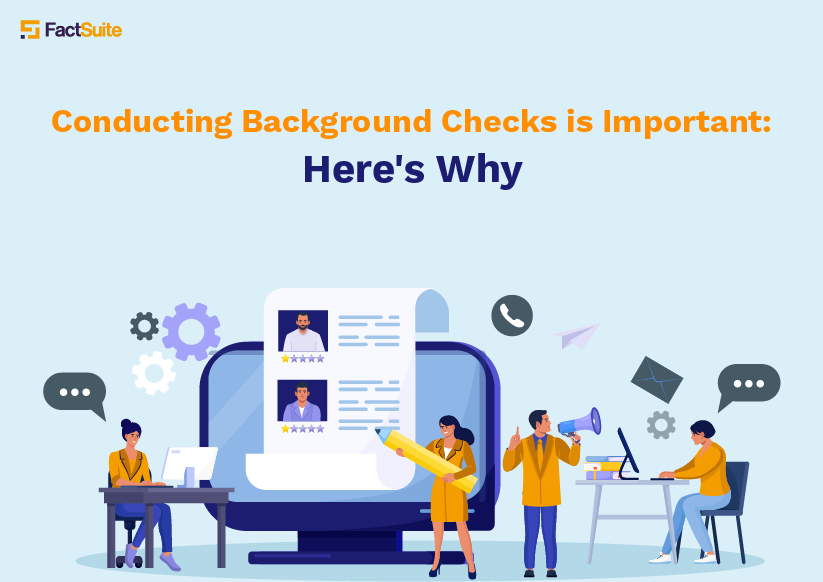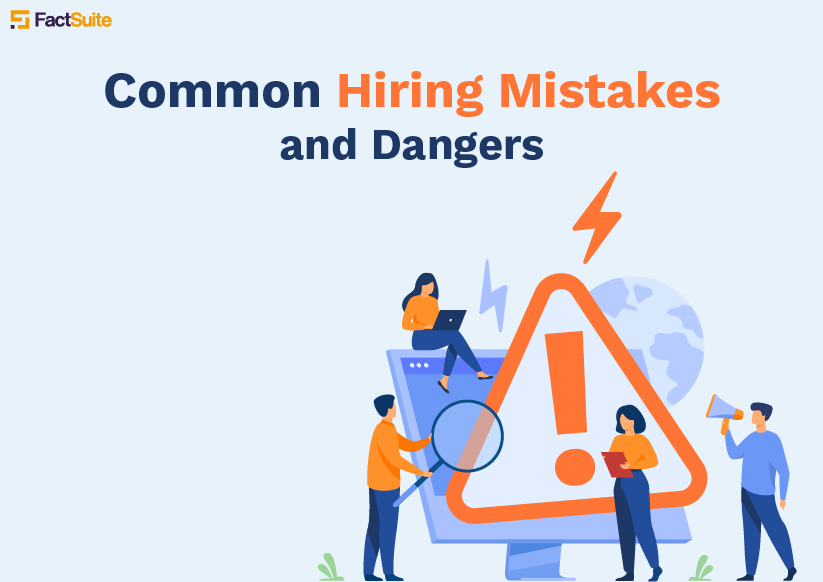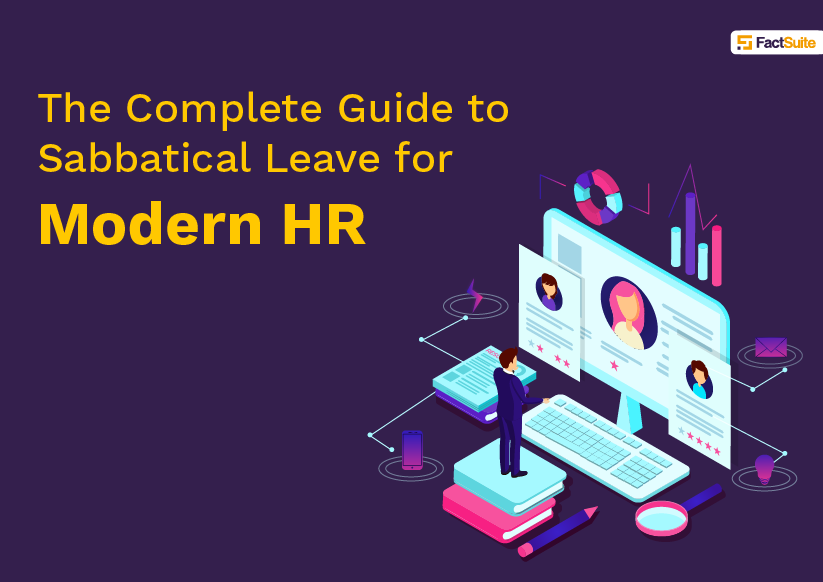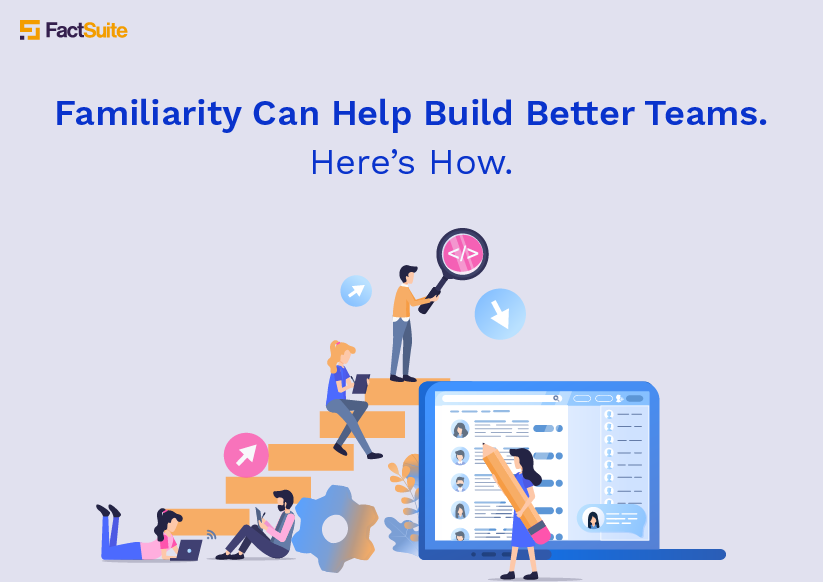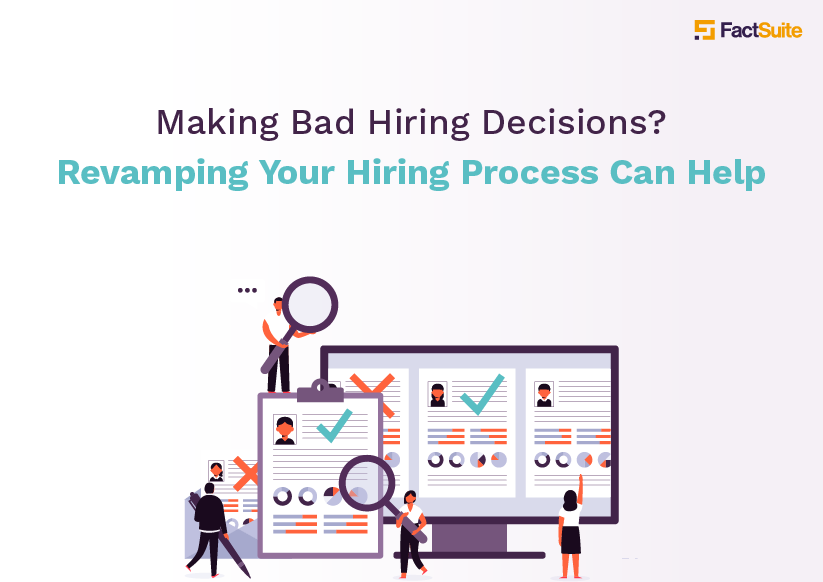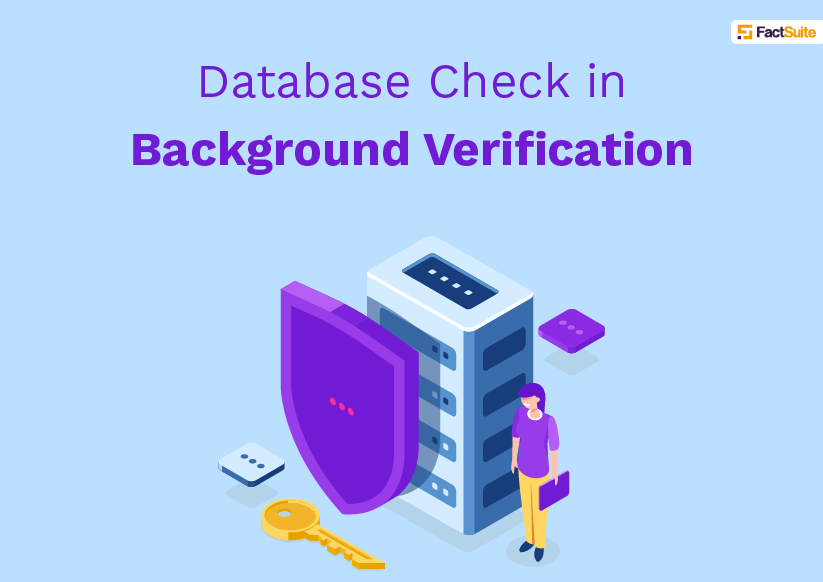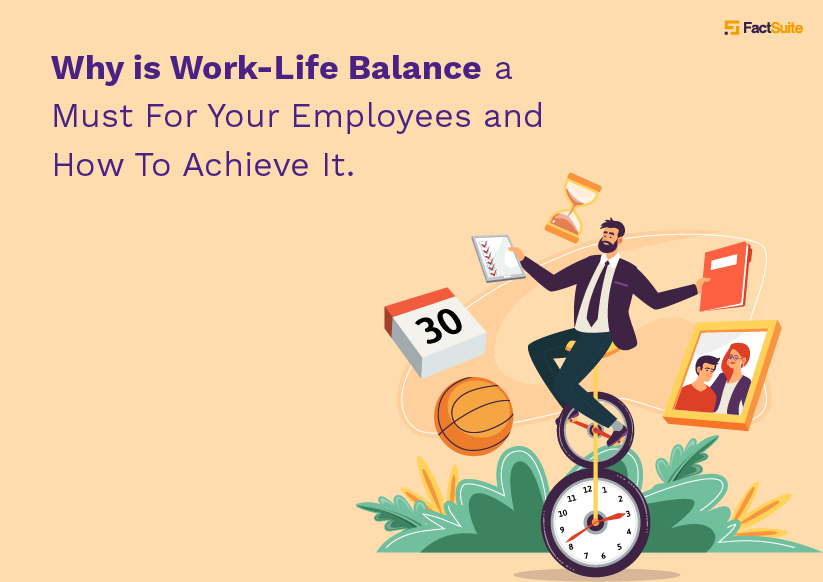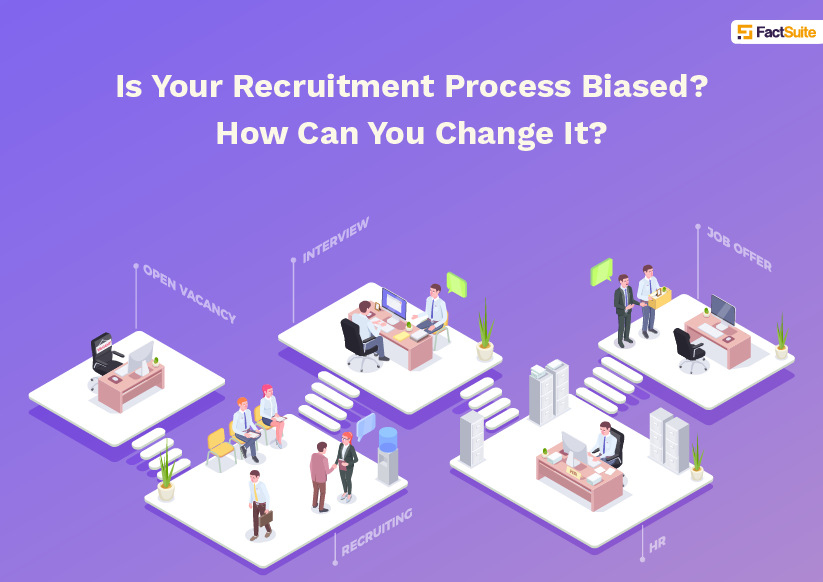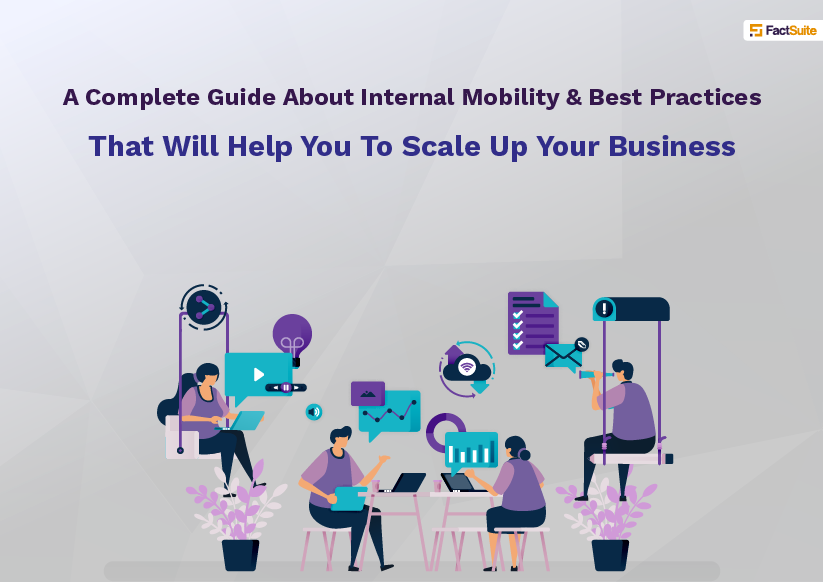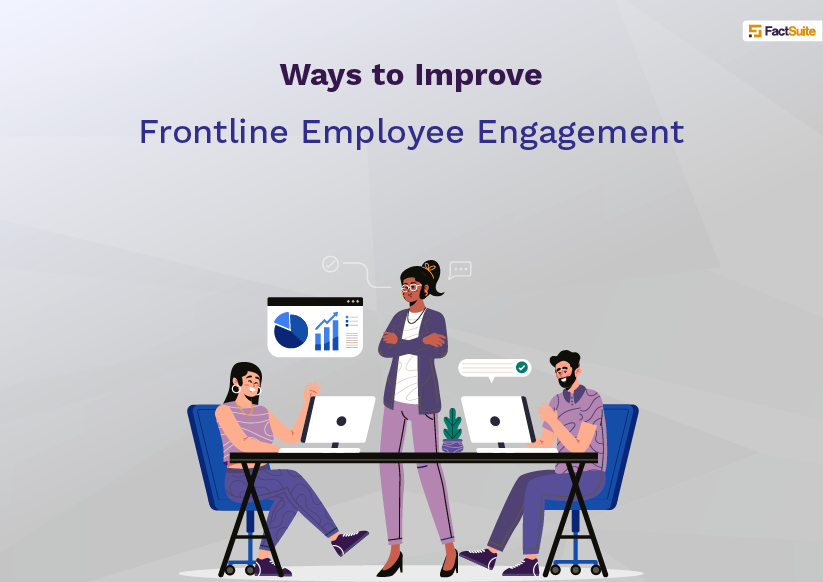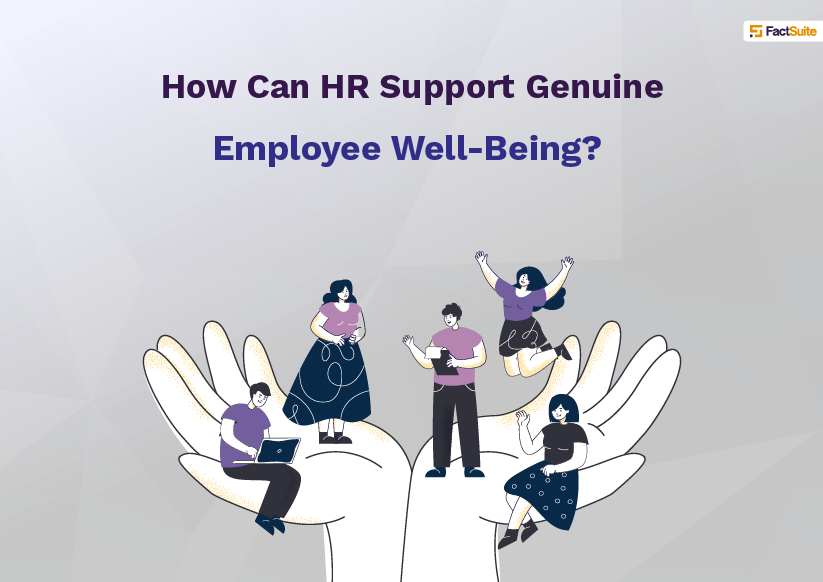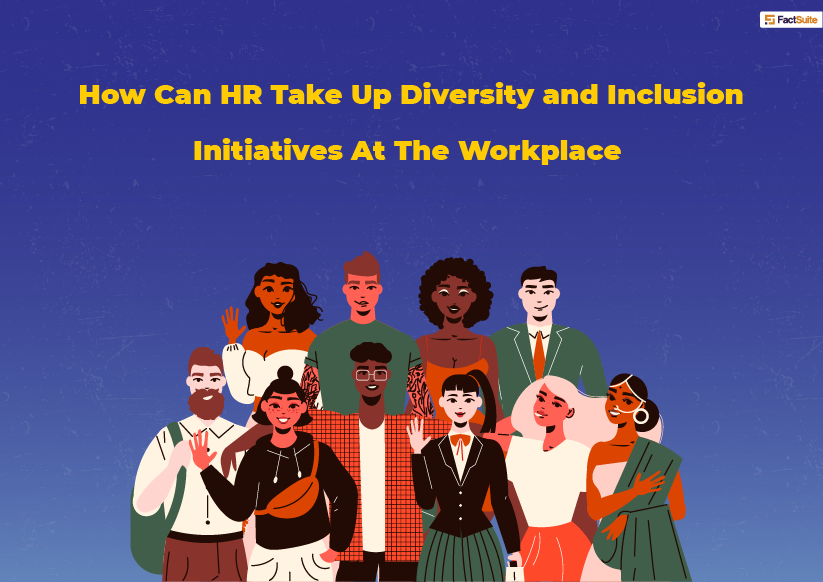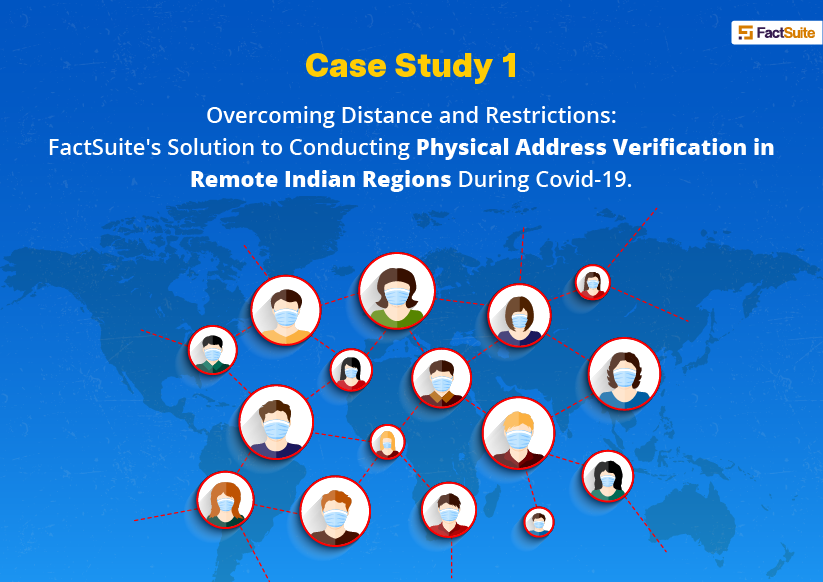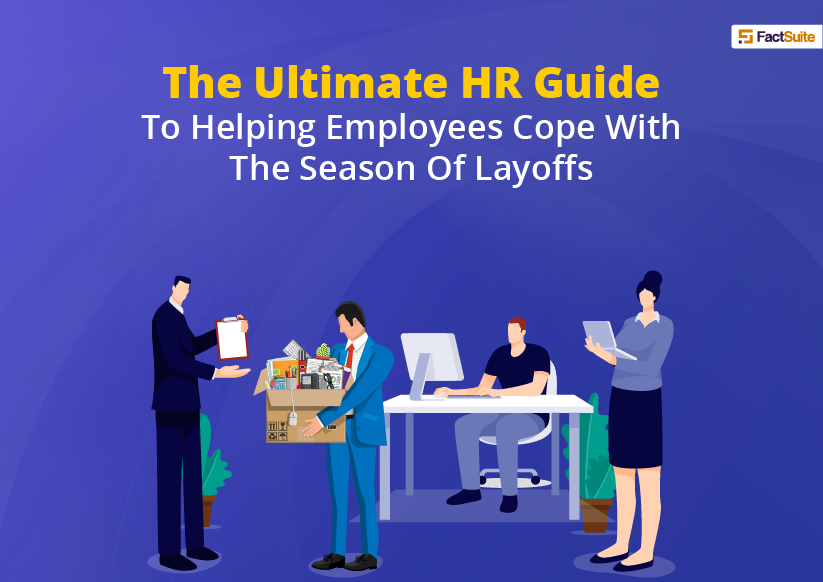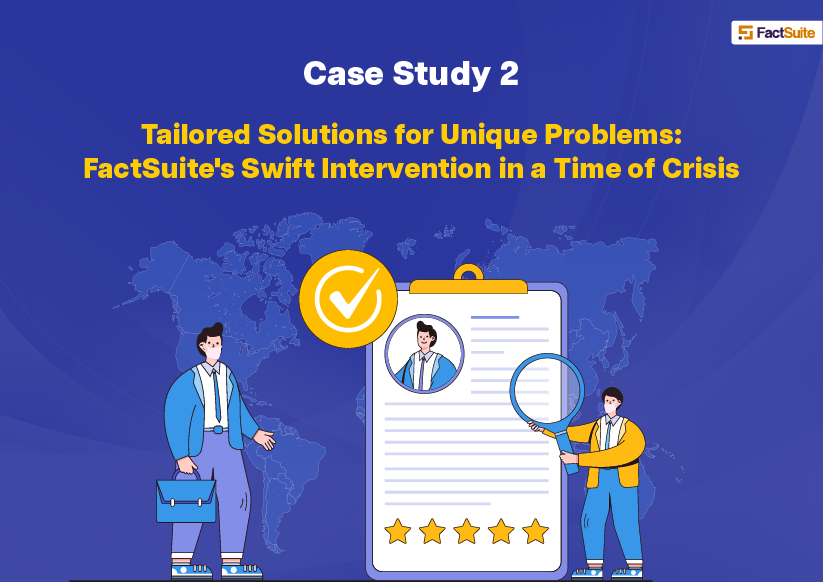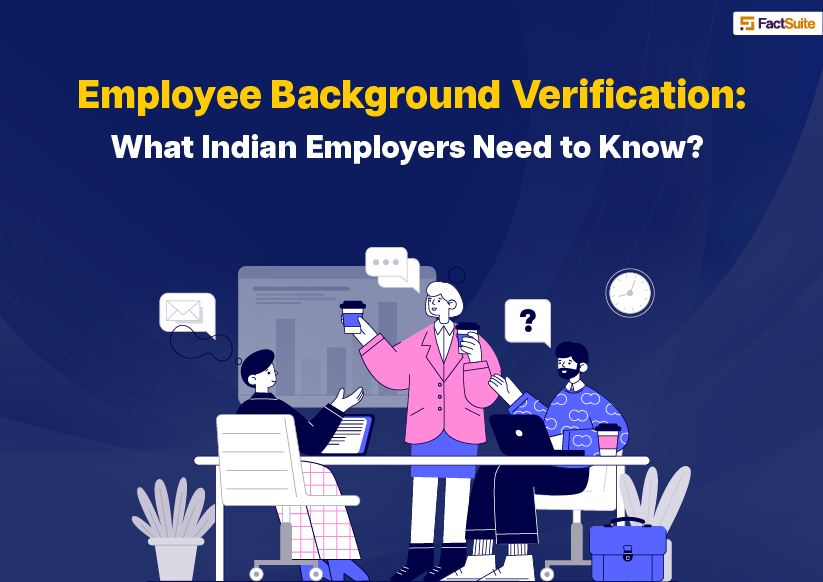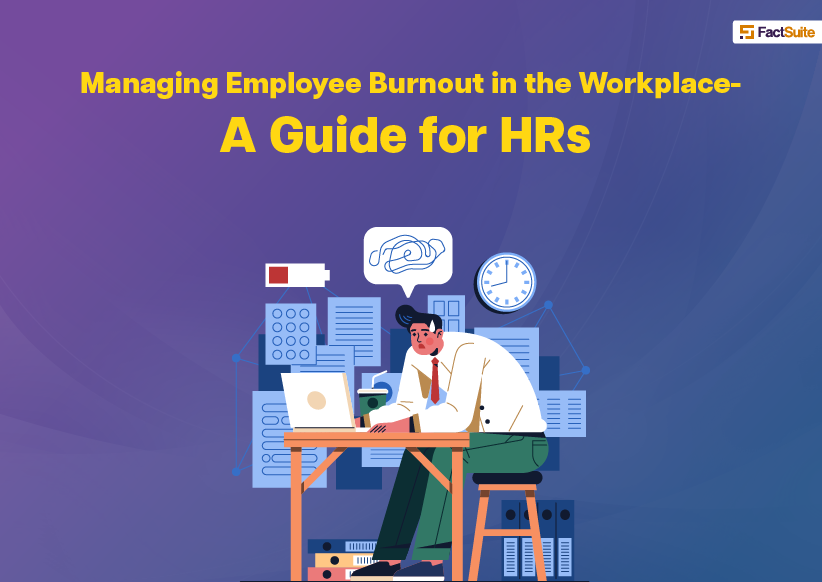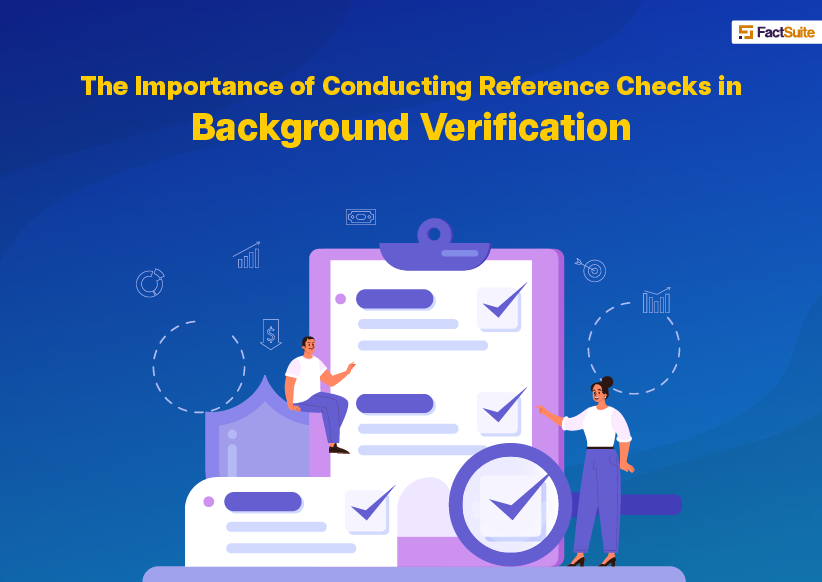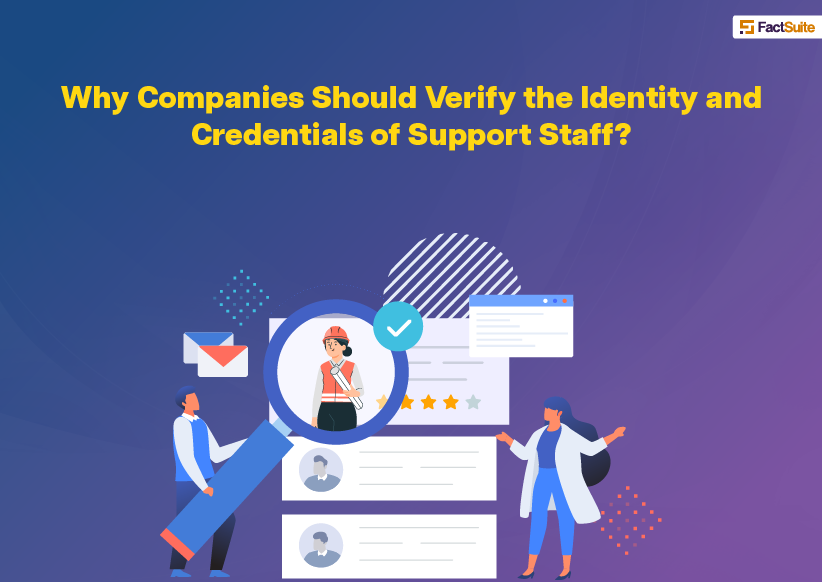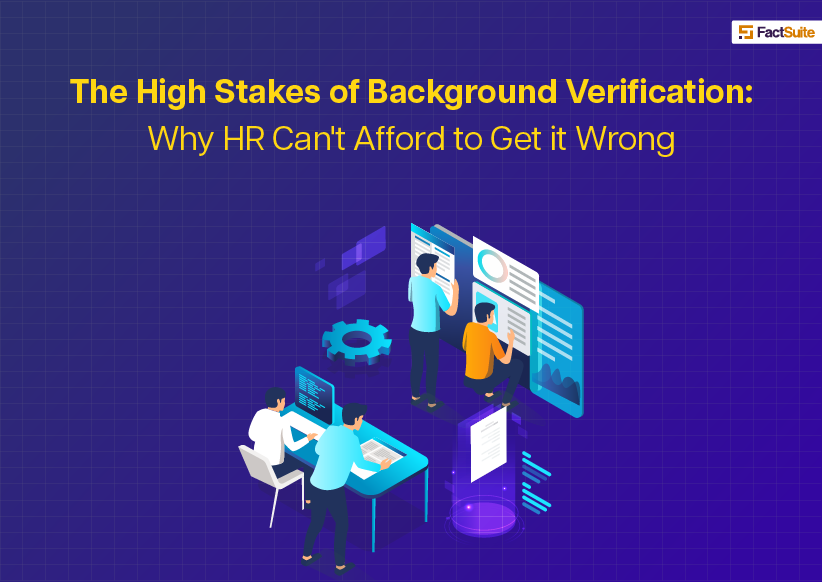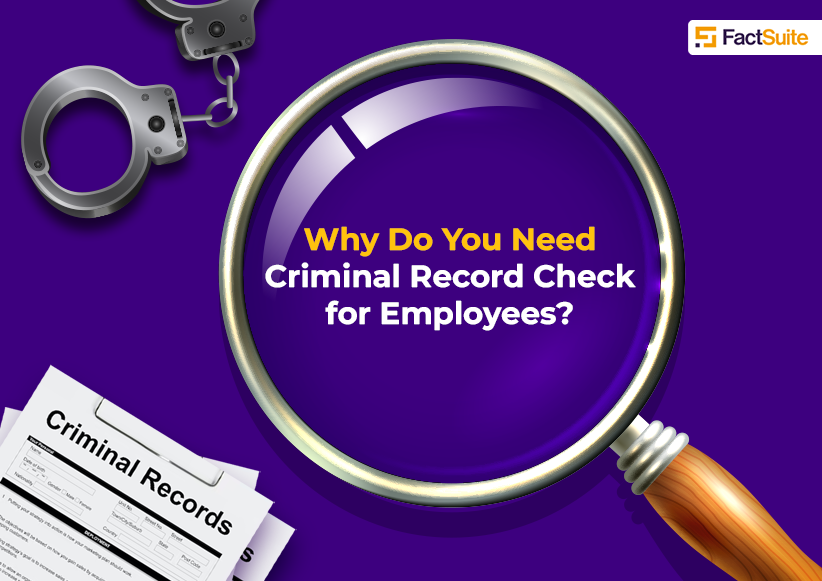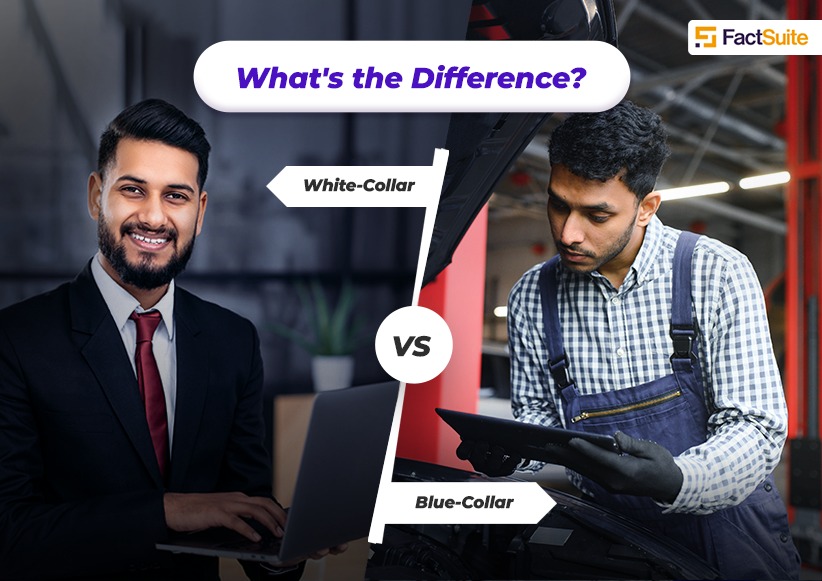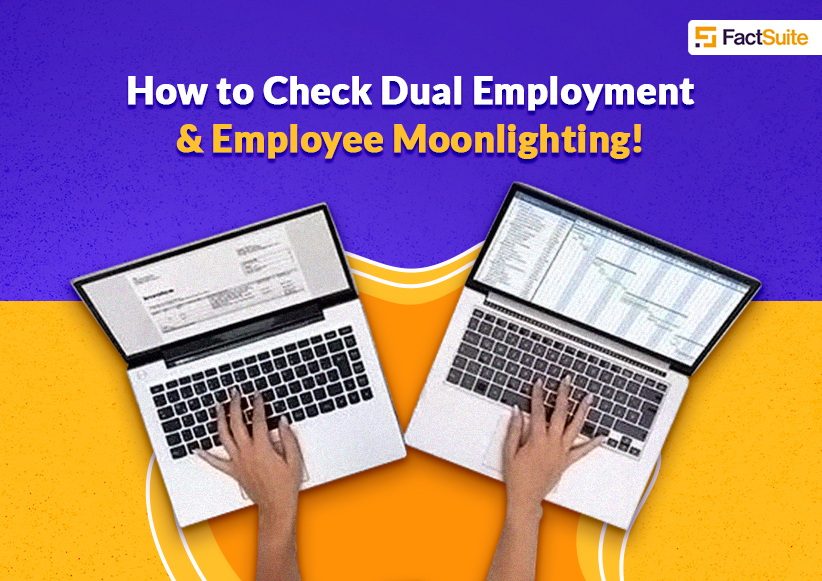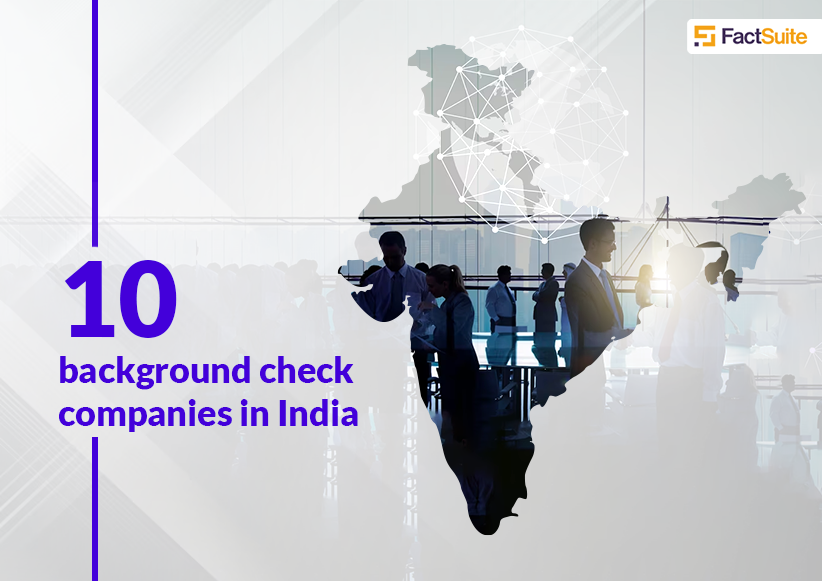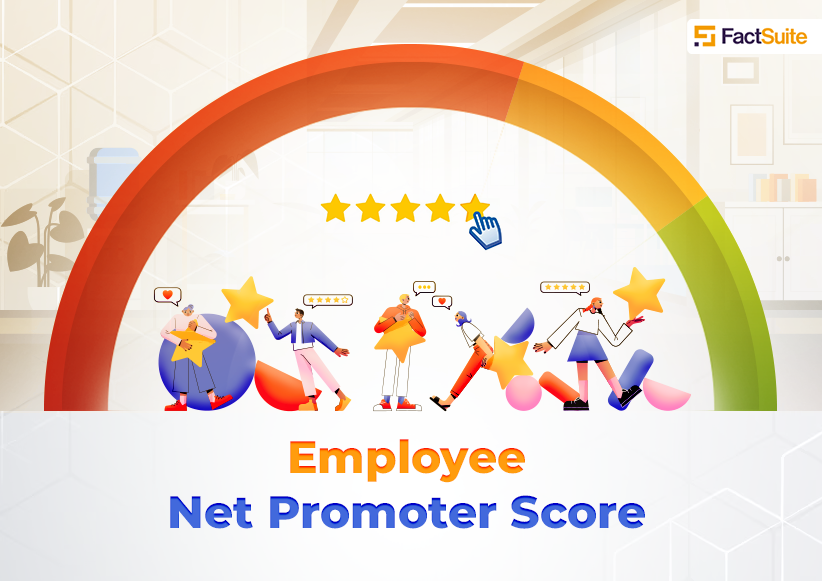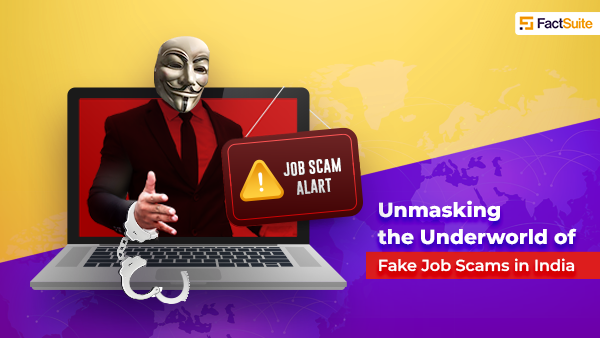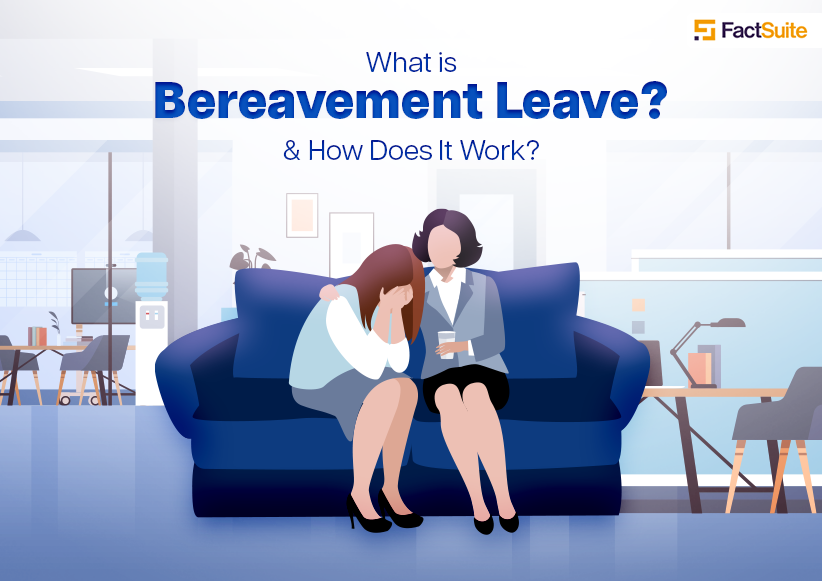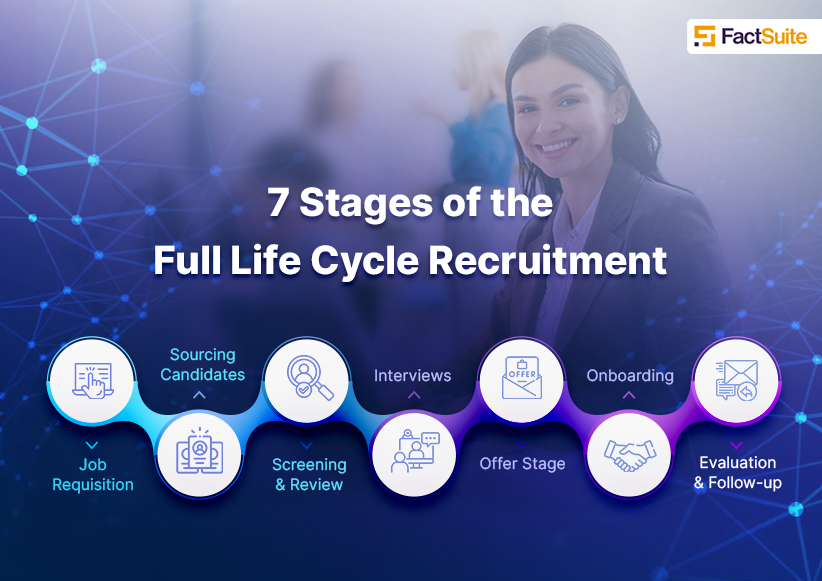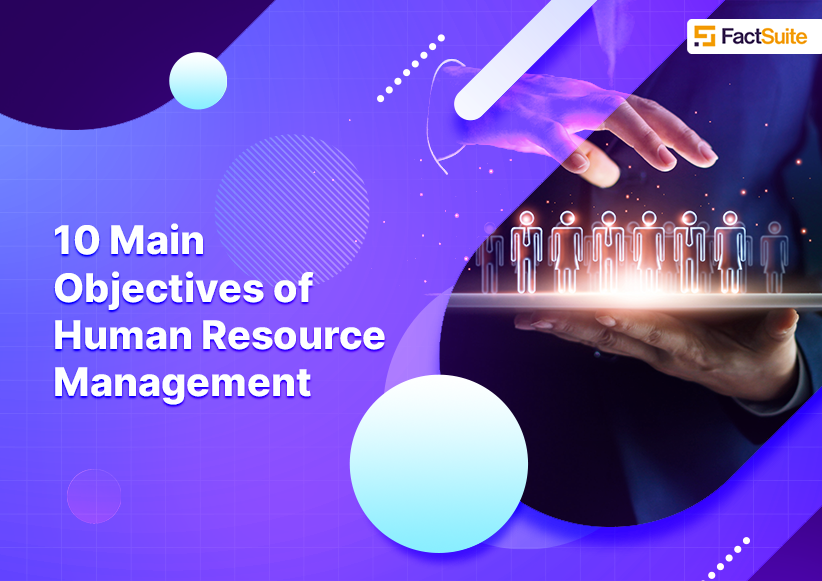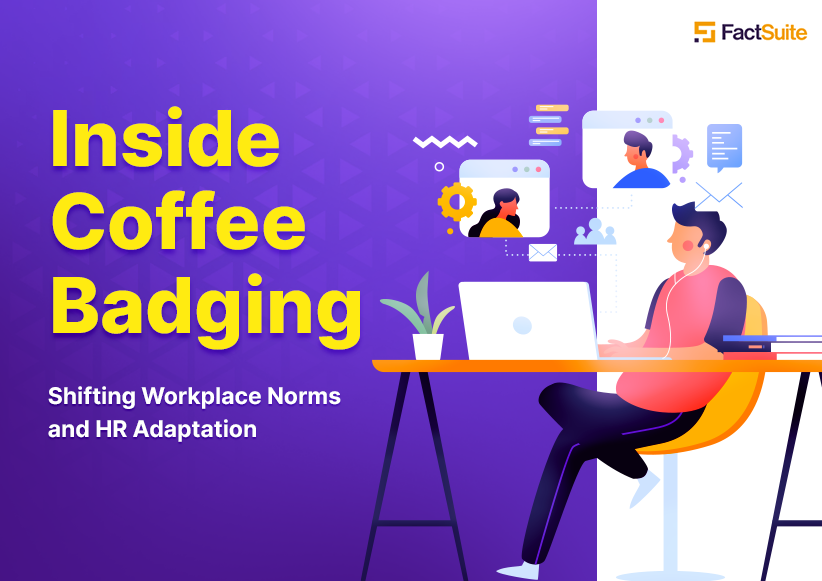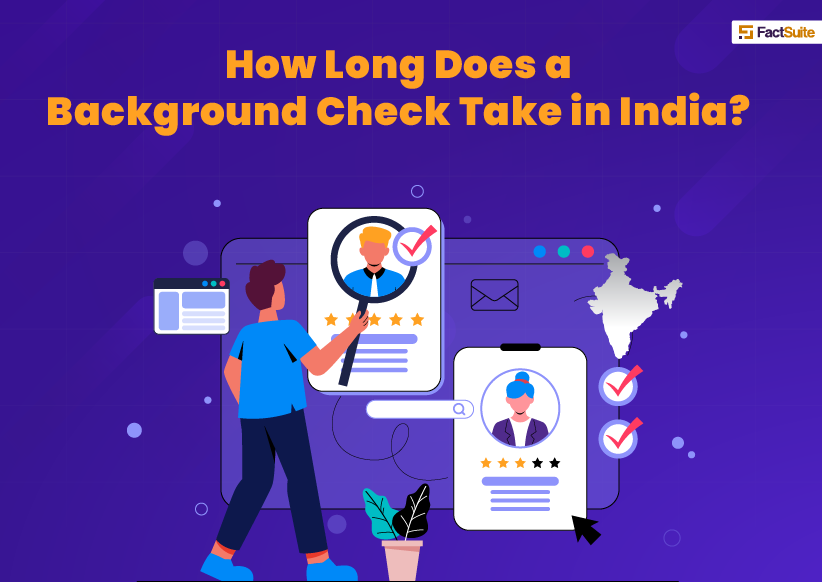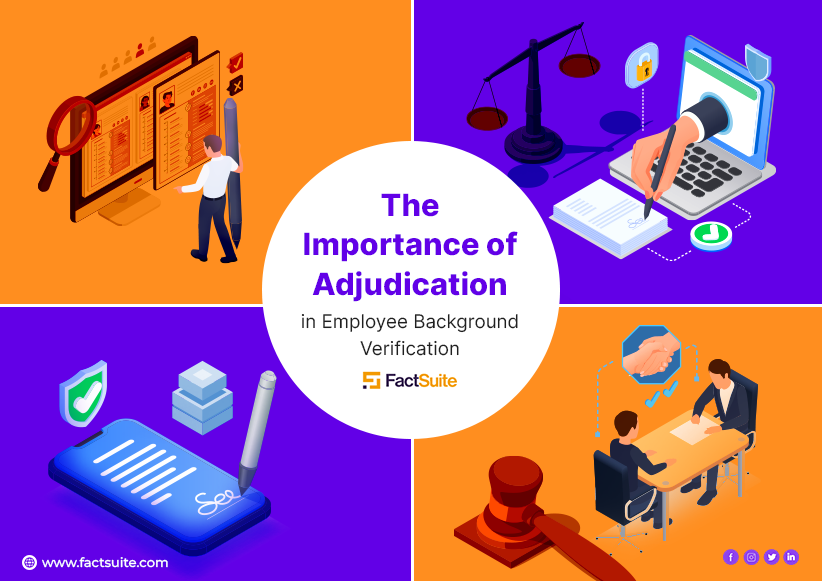How Do Companies Conduct Background Checks In India?

Table of Contents
1. What Does a Background Check Mean?
2. How Do Companies Do Background Check in India?
-
Pre-Employment Verification
-
Background Verification Agencies
-
Documentation and Consent
-
Local Regulations
-
Timeframe
3. Ways and Means to Do Background Checks by Different Companies
-
In-House Background Checks:
-
Third-Party Background Checks:
-
Why Third-Party Background Checks Are Preferred:
4. Companies who conduct a comprehensive background check reap the following benefits.
-
Enhanced Security
-
Quality Workforce
-
Reduced Employee Turnover
-
Protection of Reputation
-
Compliance with Regulations
-
Risk Mitigation
-
Improved Workplace Culture
-
Cost Savings
-
Customer and Client Trust
-
Competitive Advantage
5. Some common steps involved in a typical background check process in India.
-
Candidate Consent and Disclosure
-
Document Verification
-
Employment History Verification
-
Educational Verification
-
Reference Checks
-
Criminal Background Check
-
Address Verification
-
Credit Check
-
Drug Testing
-
Social Media and Online Presence Check
-
Local and National Database Checks
-
Compliance with Regulations
-
Timeframe
6. Why Are Background Checks Conducted?
-
Verification of Qualifications
-
Assessing Employment History
-
Criminal History and Safety
-
Compliance with Legal Requirements
-
Security and Workplace Safety
-
Confirming Identity
-
Protecting Vulnerable Populations
-
Reducing Employee Turnover
-
Safeguarding Company Assets
-
Legal and Regulatory Compliance
7. FAQs on How Do Companies Do Background Checks
-
How do companies do background checks?
-
Are background verification processes legal in India?
-
How many years do companies go back for background checks?
-
What do companies look for when doing background checks?
What Does a Background Check Mean?
Before delving into the specifics of how background checks are conducted in India, let's establish a clear understanding of what a background check entails. A background check is a meticulous process employed by organizations to validate the authenticity of information provided by job applicants. BGV’s importance in the hiring process is magnanimous, designed to confirm an individual's qualifications, experience, and overall suitability for a given role.
How Do Companies Do Background Check in India?
Companies in India typically conduct background checks on potential employees to verify their credentials, qualifications, and past employment history. BGV’s importance is to ensure that candidates are honest about their background and qualifications, and to protect the company from potential risks. Here's an overview of how background checks are typically done in India:
1. Pre-Employment Verification:
Background checks are usually conducted after a candidate has been offered a job and has accepted the offer. This is to ensure that the candidate's background aligns with the information provided during the hiring process.
2. Background Verification Agencies:
Many companies in India outsource the BGV process to third-party verification agencies. These agencies specialize in conducting thorough background checks and are experts in the BGV process.
3. Documentation and Consent:
The candidate is typically required to provide consent for the background check. They may also be required to provide necessary documents such as educational certificates, employment letters, identity proof, and address proof.
4. Local Regulations:
It's essential to adhere to local and national regulations governing background checks. For instance, the Information Technology Act, 2000 in India has specific provisions regarding data protection and privacy.
5. Timeframe:
The duration of the background check in India can vary depending on the complexity and extent of the checks. It can take anywhere from a few days to several weeks.
Ways and Means to Do Background Checks by Different Companies
In-House Background Checks:
-
Direct Oversight: In-house checks of BGV are managed by the company's internal human resources or recruitment team. This allows for direct control over the process.
-
Customization: Companies conducting in-house checks can customize the BGV process to align with their specific needs and policies.
-
Resource Allocation: Conducting background checks in-house requires dedicating internal resources, including staff and time.
-
Cost Considerations: The cost of in-house checks of BGV includes not just the staff's time but also the cost of developing and maintaining the necessary infrastructure and expertise.
-
Limited Expertise: In-house teams may not possess the same level of expertise and specialized tools as third-party agencies.
Third-Party Background Checks:
-
Specialized Expertise: Third-party verification agencies specialize in conducting background checks. They have the experience, knowledge, and tools to perform comprehensive checks.
-
Efficiency and Speed: Third-party agencies are often more efficient and faster at conducting background checks, which can speed up the hiring process.
-
Cost Savings: Outsourcing background checks can be cost-effective, as companies don't need to invest in specialized tools and training for in-house teams.
-
Consistency: Third-party agencies follow standardized procedures and industry best practices, ensuring consistency in the BGV process.
-
Compliance and Legal Expertise: These agencies are well-versed in the legal aspects of background checks, ensuring that the BGV process complies with local regulations.
-
Reduced Bias: Third-party agencies offer impartial assessments, reducing the risk of bias that might arise if an in-house team conducts the checks.
-
Specialized Checks: Some agencies offer additional checks, such as criminal background checks, credit checks, and international verification services, which may be essential for certain positions.
Why Third-Party Background Checks Are Preferred:
-
Expertise: Third-party agencies specialize in background checks, providing a higher degree of accuracy and reliability.
-
Efficiency: They often complete checks of BGV more quickly, expediting the hiring process.
-
Cost-Effective: Outsourcing can be more cost-effective than investing in internal resources and infrastructure.
-
Compliance: Third-party agencies have a strong understanding of the legal and regulatory landscape, reducing legal risks for the company.
-
Impartiality: Third-party agencies offer unbiased assessments, which is crucial for maintaining fairness in the hiring process.
-
Standardization: They follow standardized procedures, ensuring consistency in the background check process.
While both in-house and third-party background checks have their merits, the specialized expertise, efficiency, cost savings, and compliance offered by third-party agencies make them the preferred choice for many companies, especially when comprehensive and accurate BGV importance is felt for the organization's success.
Companies who conduct a comprehensive background check reap the following benefits
1. Enhanced Security
Comprehensive checks of BGV help companies identify potential red flags in a candidate's history, such as criminal records or fraudulent claims. This information allows employers to make informed hiring decisions, enhancing workplace security and reducing the risk of employee-related incidents.
2. Quality Workforce
By conducting in-depth background checks, companies can ensure that they hire candidates with the appropriate skills, qualifications, and experience for the job. This results in a more capable and productive workforce, which, in turn, positively impacts the company's overall performance.
3. Reduced Employee Turnover
Hiring candidates with accurate qualifications and experience decreases the likelihood of them being mismatched for the job. This, in turn, reduces employee turnover and the associated costs of recruiting, onboarding, and training new staff.
4. Protection of Reputation
A robust background check process can safeguard a company's reputation by ensuring that the individuals they hire have no history of unethical or illegal behavior. This is especially important in industries where trust and integrity are paramount.
5. Compliance with Regulations
Conducting comprehensive background checks is essential for ensuring compliance with industry-specific regulations and legal requirements, particularly in fields such as finance, healthcare, and childcare. Failure to comply can result in severe legal and financial consequences.
6. Risk Mitigation
Background checks allow companies to identify candidates who may pose a risk to the organization, either due to past criminal behavior or a history of dishonesty. By uncovering such risks early in the hiring process, companies can make informed decisions to mitigate potential threats.
7. Improved Workplace Culture
Hiring individuals who align with the company's values and culture is essential for maintaining a positive work environment. Comprehensive background checks help ensure that candidates have the right attributes to fit in and contribute positively to the company culture.
8. Cost Savings
While background checks involve an initial investment, they often result in long-term cost savings. By avoiding bad hires, companies can reduce recruitment costs, training expenses, and potential legal fees associated with employee misconduct.
9. Customer and Client Trust
In many industries, clients and customers place their trust in companies to provide safe and reliable services. A comprehensive background check process helps instill trust by demonstrating that a company is diligent about hiring qualified and trustworthy personnel.
10. Competitive Advantage
Companies known for conducting thorough background checks and maintaining a high standard of due diligence gain a competitive advantage. Their commitment to hiring the right individuals sets them apart in the eyes of both potential employees and clients.
Some common steps involved in a typical background check process in India
Conducting a background check in India is a crucial part of the hiring process for companies in India. It helps verify a candidate's qualifications, experience, and personal history to ensure they are a good fit for the role and the organization. Here are some common steps involved in a typical background check process in India:
1. Candidate Consent and Disclosure
The process begins with obtaining the candidate's consent to conduct a background check. Candidates are usually asked to sign a consent form and disclose any relevant information, such as previous criminal convictions or discrepancies in their resume.
2. Document Verification
The first step typically involves verifying the authenticity of the candidate's educational qualifications, identity proof, and address proof. This ensures that the candidate's submitted documents are accurate.
3. Employment History Verification
This step involves contacting the candidate's previous employers to verify their employment history. The information verified may include job titles, dates of employment, job responsibilities, and reasons for leaving.
4. Educational Verification
Educational qualifications are checked with the respective educational institutions to confirm the degrees, diplomas, or certificates claimed by the candidate.
5. Reference Checks
Personal and professional references provided by the candidate are contacted to assess their character, work ethic, and qualifications. This step helps in understanding the candidate's interpersonal skills and overall suitability for the role.
6. Criminal Background Check
Companies may conduct a criminal background check in India to ensure the candidate does not have a criminal record. This step typically requires adherence to local laws and the candidate's explicit consent.
7. Address Verification
Verification of the candidate's current and past residential addresses is carried out to ensure that the information provided is accurate and consistent.
8. Credit Check
For positions involving financial responsibility, companies may conduct a credit check to assess the candidate's financial history and stability.
9. Drug Testing
In some industries, such as pharmaceuticals or transportation, candidates may be required to undergo drug testing as part of the background check.
10. Social Media and Online Presence Check
Reviewing a candidate's social media profiles and online presence is becoming increasingly common to gain insights into their behavior, personality, and any potential red flags.
11. Local and National Database Checks
Some companies may utilize databases to check for any legal issues, sanctions, or compliance violations associated with the candidate's name.
12. Compliance with Regulations
Companies must ensure that the background check process adheres to local, state, and national regulations governing background checks, data privacy, and the protection of candidate rights.
13. Timeframe
The duration of the background check in India can vary depending on its complexity and the methods used. It can range from a few days to several weeks.
Why Are Background Checks Conducted?
Background checks are a standard part of the hiring process for many companies and organizations. These checks serve several critical purposes, helping employers make informed and responsible hiring decisions. Here are the primary reasons why background checks are conducted:
1. Verification of Qualifications
One of the fundamental purposes of a background check is to verify a candidate's educational qualifications, work experience, and professional certifications. This ensures that the candidate possesses the required skills and knowledge for the job.
2. Assessing Employment History
Background checks confirm a candidate's work history, including job titles, dates of employment, job responsibilities, and reasons for leaving previous positions. This information helps employers evaluate a candidate's career progression and suitability for the current role.
3. Criminal History and Safety
Background checks often include criminal history checks to ensure that candidates do not have a history of criminal activity. This is crucial for jobs involving trust, security, and the well-being of others, such as childcare, healthcare, and law enforcement.
4. Compliance with Legal Requirements
Certain industries and positions require employees to meet specific legal or regulatory requirements. Background checks help ensure that candidates meet these requirements, avoiding potential legal and compliance issues.
5. Security and Workplace Safety
Background checks help identify potential red flags, such as a history of violence or misconduct, that could pose a risk to workplace safety and the well-being of coworkers.
6. Confirming Identity
Verifying a candidate's identity and address ensures that they are who they claim to be, reducing the risk of identity theft and fraudulent applications.
7. Protecting Vulnerable Populations
In roles involving contact with vulnerable populations, such as the elderly or children, background checks are essential to safeguard these individuals from potential harm or abuse.
8. Reducing Employee Turnover
Conducting background checks can lead to better hiring decisions, which, in turn, can reduce employee turnover. Hiring individuals with the right qualifications and cultural fit helps in retaining talent.
9. Safeguarding Company Assets
For roles with access to valuable company assets, background checks help ensure candidates do not have a history of theft, embezzlement, or other activities that could jeopardize company property.
10. Legal and Regulatory Compliance
Background checks are often required to meet the legal and regulatory obligations of the industry, such as healthcare, finance, or transportation, to ensure that candidates meet the necessary criteria.
FAQs on How Do Companies Do Background Checks
-
How do companies do background checks?
Background checks are meticulous processes used by organizations to verify information provided by job applicants. They typically involve verifying qualifications, work history, and conducting checks for criminal records, reference checks, identity verification, and more. The process may be conducted in-house or outsourced to specialized agencies.
-
Are background verification processes legal in India?
Yes, background verification processes are legal in India. However, they must comply with local and national regulations, especially regarding data protection and privacy. Companies typically require candidate consent and adhere to legal provisions when conducting background checks.
-
How many years do companies go back for background checks?
The number of years that companies go back in a background check in India can vary. Typically, employers focus on the last 7-10 years, including employment history, criminal records, and credit history. However, some positions and industries may require more extensive checks covering an individual's entire adult life.
-
What do companies look for when doing background checks?
Companies primarily look to verify qualifications, work history, and conduct criminal background checks. They may also verify identity, check references, assess credit history for financial positions, review social media presence, and conduct additional checks based on the specific requirements of the job and industry. The goal is to ensure that candidates are honest and suitable for the position.

